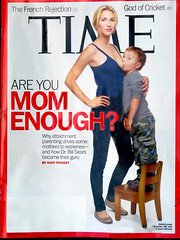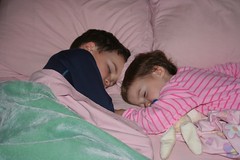When I was pregnant for the first time, I knew one specific thing was going to be a part of my role as mother and that was breastfeeding. My own mother had breastfed all of her five children and it felt very normal, almost a non-issue. We bought many things in preparation for the new baby, a crib, car seat, and stroller, but no bottles. To my surprise and deep frustration, the one thing that I had no worries or insecurities about, became a huge struggle. My son would not nurse for any significant amount of time for the first month of his life. The most natural part of mothering, for me, turned into a torturous routine of prepping and prodding, ultimately failing with my son only taking a small fraction of what he would need, and then pumping to offer later via a bottle. There was intense fatigue, infections, and numerous consultations with our midwife and lactation specialists. It was humbling to say the least. Breastfeeding was the one thing that I had been calm and confident about. Instead, I was left wondering what I was doing wrong.
Fourteen years later, the Time magazine cover, "Are you mom enough?", hit a nerve. I struggled to understand what the cover and subsequent flurry of public commentary meant to me. When I was bleary eyed and brain dead from exhaustion the last thing that I needed was public scrutiny and judgement. It felt like that cover photo was landing a blow on breastfeeding in general, not just those who breastfeed past the cute, defenseless time of infancy. I have my own opinions about breastfeeding older children but my biggest theory is that as Americans, we are becoming more and more uncomfortable with lifestyles that promote emotional closeness, reject excessive consumerism, and allow for individuality. It doesn't matter that a large part of the world shares a bed or at least a bedroom with their child(ren), in the U.S. it's suspect. It doesn't matter that children all over the world are able to live with very little resources, in the U.S. our children's greatest gift is to help us stimulate the economy with purchases for "healthy development", "enrichment", and "stimulation". Less is more is heresy.
One of the big issues for our family around attachment parenting was the use of a sling for carrying and our (various mutations) shared sleeping quarters. My boys were toddlers and walking competently when we stopped using the sling. The toddler moved to a sidecar bed when the new baby came and then they shared a bed in their own room as they both transitioned out of our room at two and four. We received many comments, even from people we love, about how we needed to stop babying them. I was resentful at the time that we could be judged for damaging our children or limiting their capacity for independence when they were notably smart, creative, and very confident. When I would evaluate whether we were doing the right thing, it was never the boys that gave proof that we should change course, it was me. Attachment parenting was hard for me. There were many days when I wasn't sure how much longer I could stay healthy and maintain the routine of physical closeness. The choices we made were never as planned out or as calculated as I may have liked. We moved one day to the next, loving our kids and trying desperately to do what seemed right for them. What was good for one wasn't the same for the other, and our plans and intentions were always being tweaked.
So the cover, and the public debate, stirred those early years up for me. My own experience tells me that what I think will be easy or least manageable, frequently becomes a surprising struggle. Other things that I never even planned can come to feel natural. The one thing that remains constant is the love part. There are happy kids who were fed formula and "Ferberized" and there are happy kids who were breastfed and slept in a family bed. The happiness comes from families who are genuinely doing there best to meet their child's unique needs and doing that in love. We don't need to pick sides and label one group of families as "normal" or "ideal" and demonize others. A different style of parenting doesn't need to feel like a challenge to your own. Make the choices that meet the needs of your child, your family, and you. Making choices based on what works or doesn't work for someone else may be a fun debate topic but it's not good for families.



Amen! There isn't a formula for parenting. Let's support our various choices.
ReplyDelete